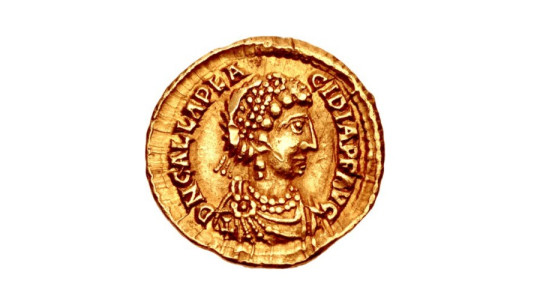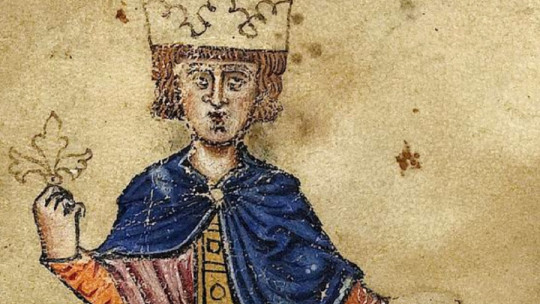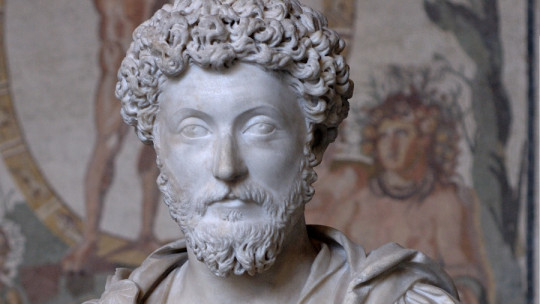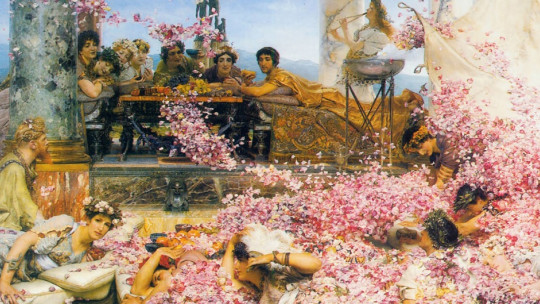Who was Gala Placidia? What do we know about this powerful and determined woman? Daughter, sister and mother of emperors, Gala Placidia held the reins of the Empire at a time of acute economic, political and social crisis. It was the beginning of the 5th century, and the days of the Western Empire were already numbered.
What was Gala Placidia’s role in the entire process? In this article we invite you to travel through the exciting biography of this very important woman from late Rome, and about whom there is still much legend.
Gala Placidia, a biography full of shadows
Aelia Gala Placidia, since that was the full name of the protagonist of this article, it is one of those fascinating and mysterious characters that history gives us Because the sources that tell us about Gala Placidia are somewhat obscure and, at times, contradictory. Not only in what refers to her vital events, but also in terms of the role she had in the future of the Roman Empire.
Were you born in the East or the West?
The exact date of Gala Placidia’s birth is not known, nor is it known for sure where she was born. Some historians lean towards Constantinople; This hypothesis would be, a priori, the most logical, since for many years the capital founded by Constantine had been the most important city in Europe and the epicenter of Roman power. However, other sources point to Milan as the city where Gala Placidia was born, where her parents are supposed to have been at the time of her birth.
Daughter and sister of emperors
And who were his parents? None other than Emperor Theodosius I the Great and his second wife Gala Theodosius I will be one of the crucial emperors in the history of Rome, since his will be the edict that, in the year 380, will establish Christianity as the only official religion of the Empire. With it, the pagan world of Ancient Rome, at least the official one, dies forever.
The golden childhood of little Gala Placidia, spent in Constantinople, was unexpectedly cut short in 395, with the death of her father the emperor. The death of the great Theodosius represents a before and after in the history of Rome, since, after his death, the Empire is definitively divided into two halves: for his son Honorius it will be the West; for Arcadio, Oriente. From then on, the Roman Empire would never be united again.
A woman in a man’s world
As we have commented previously, historical sources do not agree with the assessment of Gala Placidia’s legacy. As a general rule, historians contemporary with the empress or, at least, immediately after her death, They describe her as a woman who is very qualified for the government, as well as intelligent and sensible
Thus, Pablo Orosio, famous historian and theologian of the 5th century, describes her as “a woman certainly of sharp wit and sufficiently honest thanks to her religious spirit.” Orosio emphasizes, in turn, the great influence that Gala Placidia had on the government decisions of her first husband, the Gothic king Ataúlfo. However, it is no less evident that Orosius makes this portrait of the empress by virtue of her condition as a Christian. Given the suspicion, not to say rejection, that strong and determined women aroused in Ancient Rome, we can think that, if Gala Placidia had been a simple “barbarian” queen and, therefore, pagan or Arian, the historian would not have described in such a pleasing way.
In the following century, with Justinian now in command of the Eastern Roman Empire (the West had already fallen into the hands of the invading peoples), the figure of Gala Placidia darkens again. At that time she was considered one of those responsible for the weakening of the Roman Empire and, therefore, its fall. This accusation is, of course, as exaggerated as it is meaningless, since a multitude of factors came together in the fall of the Western Roman Empire. However, as Pablo Fuentes Hidalgo points out in his book Gala Placidia: a sovereign of the Christian Empire, the emperor needed to justify her attempts to recover, by military force, the now extinct Western Empire. So, accuse Gala Placidia of his downfall It was a very successful propaganda maneuver, in this sense.
The invasion of the Visigoths
When the Visigoths sacked Rome in August 410, Gala Placidia was in the city. She had been transferred there after the death of her father, from Constantinople. In the Eternal City she had become a woman, in the care of her cousin Serena, who was married to Stilicho, an important magister militum. This Stilicho was in charge of educating Honorius, Gala’s brother and future emperor of the West, who had traveled with her from Constantinople.
But the disorders do not wait. The political instability experienced by the Western Empire caused the Visigoths to enter northern Italy in 408 and advance dangerously towards Rome. Military disasters cause the fall of Stilicho, apparently instigated by Galla Placidia herself. The young woman (because at that time she must have been about 20 years old) is not content with the overthrow and death of the magister militum, but also accuses her cousin Serena of treason, for which the Senate condemns her to death. These events show us a Gala Placidia who is not only strong and determined, but also lacking in scruples, and whom she does not hesitate to condemn.
Where, then, is the truth? In those who maintain that Gala Placidia was just another pawn in the great political game of Rome, or in those who say that she always held the reins of her own destiny? Probably, and as always, the truth is somewhere in between.
The kidnapping of Gala Placidia
Be that as it may, In August 410, the Visigoths were at the gates of Rome and sacked the city for seven long and tortuous days The only thing that, it seems, remains unscathed are the churches. This has been demanded by Alaric I, the leader of the invaders, who has recently converted to Arianism, one of the main heresies of the Christian religion. During the looting, the Visigoths took innumerable treasures; and not only materials, since, when they finally leave Rome, Gala Placidia travels among her troops, becoming her hostage to use as a bargaining chip in future negotiations.
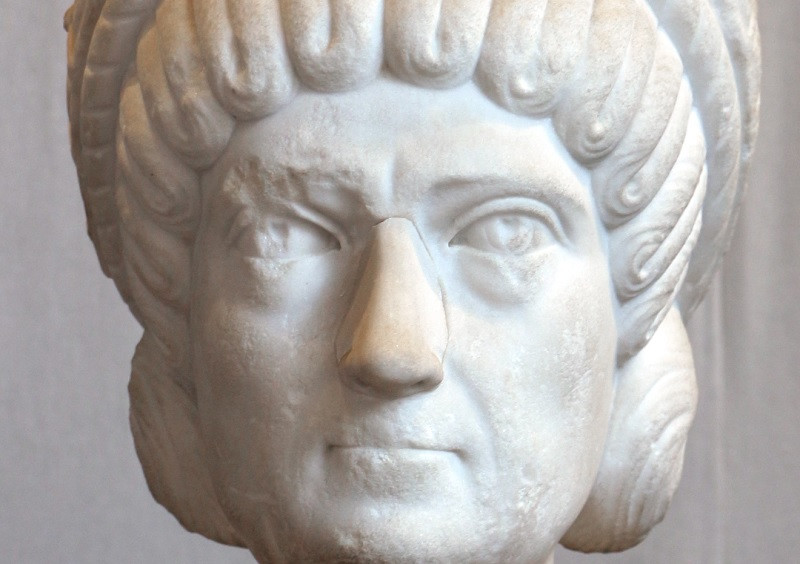
Towards the promised land
After the immense plunder, the Visigoths left for southern Italy. But in the autumn of 410 King Alaric falls victim to fever which, according to some authors, would be nothing other than malaria. The first great king of the Visigoths was buried in the bed of the Busento river; According to legend, the course of the river was diverted to open the monarch’s tomb.
Disoriented, now deprived of the guide whom they had followed for so long, the Visigoths hesitate about what is the next step to follow. When Ataúlfo, Alaric’s brother-in-law, is elected the new king, the young man does not hesitate to get his people out of Italy as quickly as possible. The Romans are after them; They must find a safe place to settle. Thus, Ataúlfo forgets the conquering dreams of his predecessor and establishes a pact with the emperor Honorius, the brother of Gala Placidia: The Visigoths will settle in southern Gaul in exchange for providing military aid to the Empire Since then, Ataúlfo and his people became foederati (federates) of the Roman Empire. The Visigoths finally had a land in which to settle permanently. That was the germ of the first Visigoth kingdom: the kingdom of Toulouse. But what was happening with Gala Placidia, meanwhile?
Gala Placidia and Ataúlfo, a love story?
The unexpected marriage between the young Roman princess and the Visigoth king has often been presented as a beautiful love story, which was consolidated during the time that Gala Placidia was held hostage by the Visigoths. However, is this so?
There is no evidence to support this version, unless the legend is told. It is true that it was not a politically strategic marriage: The union of the emperor’s sister with a “barbarian” king could only be understood as an affront to Rome It’s more; Under the circumstances, it is very likely that the marriage was a form of revenge on the part of the Visigoths, since the Emperor Honorius had not kept his end of the bargain. Because, even though Ataulf had swept away Rome’s enemies from southern Gaul, as established by the foedus, Honorius did not send the agreed compensation for these military services.
In 414, the wedding was ratified in Narbonne, in the luxurious villa of a Gallo-Roman named Ingenio. Whether out of revenge, disobedience or love, the truth is that the emperor’s sister had just married the king of a town that was an enemy of Rome. And this was an insult that Honorius was not willing to forget.
The end of the alliance
The Roman offensive did not wait. The attacks of Constantius, magister militum who, by the way, had aspired in the past to marry Gala Placidia, forced the Visigoths to abandon Gaul and take refuge in Hispanic lands. For a short period of time, Ataúlfo and Gala Placidia establish their court in what for many is the first Hispanic capital of the Visigoths, Barcino (current Barcelona). There, the royal couple has their firstborn, whom they name Theodosius in honor of Gala’s father. A call for peace, perhaps?
Princess Gala Placidia in exchange for some wheat
From here, events accelerate. In August 415, some members of the Visigoth aristocracy rebelled against Ataúlfo, whom they accused of being completely dominated by his wife. In the royal stables of Barcino, the king is stabbed in the back. Sigeric, the usurper, is proclaimed the new king of the Visigoths.
The new monarch does not dare to kill Gala Placidia, since the young woman continues to be a very precious asset for future negotiations with Rome. However, he subjects Ataúlfo’s widow to one humiliation after another; Degraded to the level of a slave, Gala Placidia is forced to walk barefoot and chained with the other slaves. The young woman, still immersed in pain over the loss of her husband and her son (who had died just a few months old), stoically endures all the martyrdoms that Sigerico inflicts on her.
The suffering of Gala Placidia comes to an end when Walia, brother of Ataúlfo, deposes the traitor Sigerico and proclaims himself the new king of the Visigoths. Without really knowing what to do with her, Walia offers Honorio a deal: his sister in exchange for wheat Honorius agrees, and in 416 Gala Placidia returns to Rome. In her place, she leaves six hundred thousand modios of Roman wheat, which will relieve for a time the atrocious hunger suffered by the Visigothic people.
A town that will never again be your town. Because Gala Placidia has returned to Rome and, therefore, is once again a Roman princess. Her loyalty must be and she will be, from now on, Rome and only Rome.
The second Roman stage
Let’s see what happened to Gala Placidia in her second Roman period.
The second marriage
In reality, his loyalty to Rome never wavered. Because, if we follow what some historians have stated, his influence on Ataúlfo was always guided by a sincere desire for harmony between both peoples and, in truth, the fact that he called his first-born son Theodosius this way seems to confirm it.
However, from then on, as the emperor’s reborn sister, she will be asked to forget her past as queen of the Visigoths. So, Gala Placidia finally agrees to marry Constancio, the magister militum who always wanted her (to her, or to the power that the young woman represented); This time, most likely, against her own will.
Silvia Casasola and Juan Antonio Cebrián maintain in the book Valor is a Woman’s Thing (where they collect interesting biographies of women of Hispanic origin) that Gala Placidia knew how to use very well the love, or obsession, that Constancio felt towards her, and that He threatened divorce when the magister militum did not satisfy any of his requirements.
Honorius elevated Constantius to the dignity of Augustus in 421 as a reward for his favors, which in practice meant being named co-emperor. Gala Placidia is also proclaimed august, so she is increasingly closer to the epicenter of power. Constantius dies shortly after and, barely two years later, the Emperor Honorius follows him without leaving any heirs on earth. Imperial power then passes to Valentinian, the son of Gala and Constantius , who is still a minor. And here comes Gala Placidia’s big moment.
The reins of power
Gala Placidia managed her son’s regency as if she were the true empress, although technically she was just that, the regent. It seems that her policies were correct; Among other things, she always maintained very good relations with the East, then governed by Theodosius II, and she respected the expansionist policies of the so-called “barbarians”, perhaps in memory of her years as queen of the Visigoths.
His political aspirations did not end with his son’s coming of age , since, after the accession of Valentinian III to the throne, he continued to interfere in state affairs. Meanwhile, he still had time to protect the still young Church and beautify Ravenna, the most important city in the Roman West at the time. There she ordered the construction of the famous mausoleum that bears her name, intended to house the bodies of her loved ones and herself, and which is a beautiful example of architecture from the last centuries of the Empire.
The life of Gala Placidia continues to offer many contradictions and legends ; but what is certain is that she is one of the most important female characters of the late Roman Empire.

